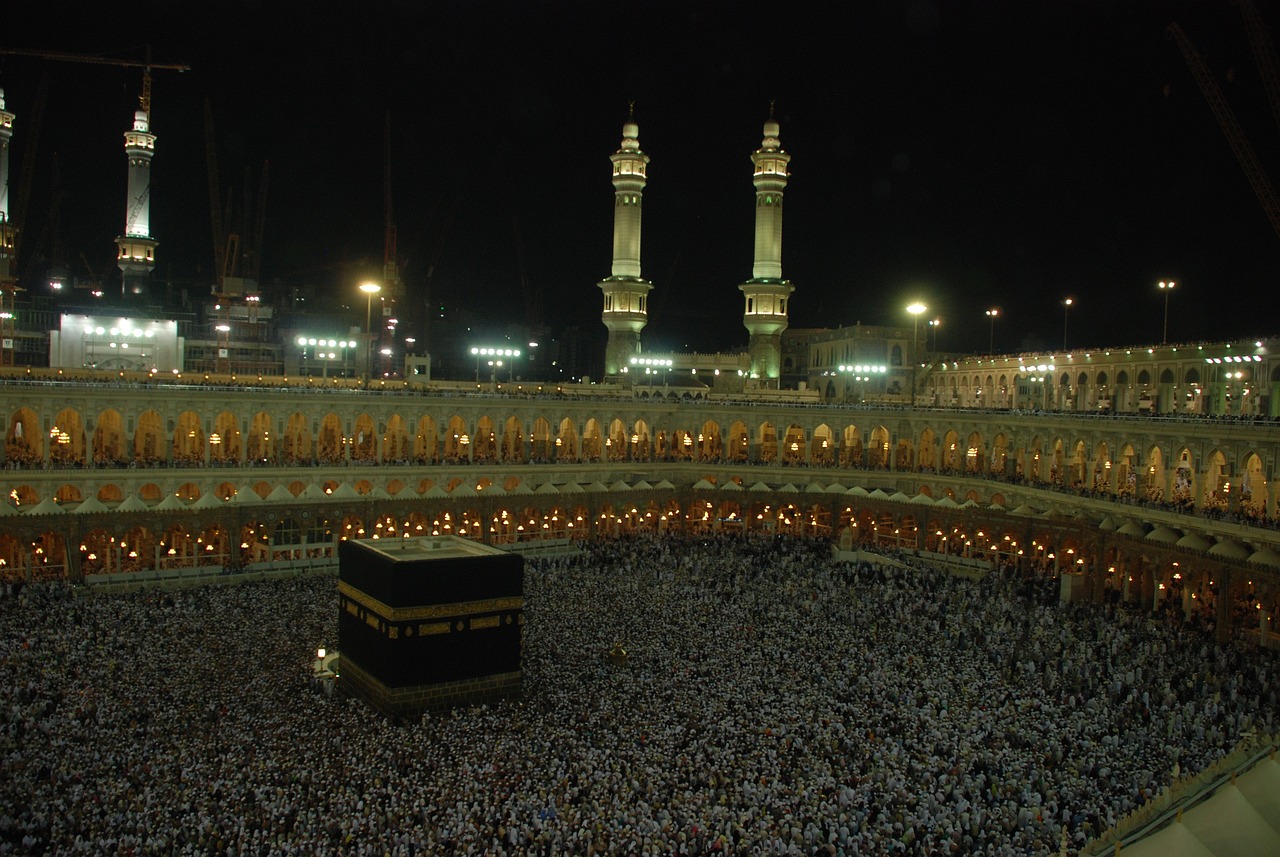The role of Hajj in Eid ul Adha holds immense significance for Muslims across the globe. Hajj is one of the five pillars of Islam, a pilgrimage Muslims undertake to Mecca. Hajj takes place during the month of Dhu al-Hijjah in the Islamic calendar, commemorating the willingness of Prophet Abraham (Peace be Upon Him) to sacrifice his son for Allah (SWT).
The Prophet’s son was replaced with a ram, and this act of obedience is marveled throughout the Muslim community to this day. During Hajj, Muslims gather in Mecca to perform sacred rituals that symbolize sacrifice, unity, and submission to Allah (SWT).
Significance of Hajj in Eid ul Adha
Hajj and Eid ul Adha are directly connected, representing two integral aspects of Islam. Eid ul Adha, the Festival of Sacrifice, celebrates the completion of Hajj. As mentioned earlier, it commemorates Prophet Abraham’s (Peace be Upon Him) willingness to sacrifice his beloved son, Prophet Ishmael (Peace be Upon Him). The rituals performed during Hajj reflect the trials and tribulations faced by father and son, reinforcing the connection between the pilgrimage and festival. Therefore, Eid ul Adha serves as a joyous occasion upon the culmination of Hajj.
Hajj deeply connects to the story of Prophet Abraham (Peace be Upon Him) and Prophet Ishmael (Peace be Upon Him). Muslims believe that Prophet Abraham’s (Peace be Upon Him) unfaltering devotion to Allah (SWT) and his willingness to sacrifice his son exhibit the ultimate act of obedience and submission. The rituals performed during Hajj, like the stoning of the Devil and the sacrifice of an animal, direct link back to Prophet Abraham’s (Peace be Upon Him) trials. This connection is a powerful source of inspiration and strength for Muslims during Hajj before Eid ul Adha.
Hajj is the perfect time for Muslims to reinforce their submission to Allah (SWT). The pilgrimage is a spiritual and physical journey where believers from different backgrounds unite to surrender to the divine. Then, sacrificing and distributing the meat amongst those in need symbolizes the importance of sacrificing one’s material possessions and desires.
Spiritual and Personal Growth through Hajj
Hajj is a transformative journey about personal and spiritual growth. Hajj is an immersive experience that allows pilgrims to detach themselves from the world’s worries and focus on their relationship with Allah (SWT). The rituals performed during Hajj instill a sense of reverence and awe, inspiring a renewal of faith. Through the mental and physical challenges faced during Hajj, like standing and walking for hours and coping with massive crowds, pilgrims learn valuable lessons regarding humility, patience, and perseverance. These tests are opportunities for self-improvement, self-discipline, and self-reflection.
On the flip side, the communal aspect of Hajj is vital in building a sense of community amongst pilgrims. Muslims from varying backgrounds, languages, and cultures unite in the same space in devotion to Allah (SWT). The shared rituals and interactions during Hajj create strong bonds and a sense of solidarity. The experience of performing Hajj as a collective Ummah reinforces the understanding that everyone is the same in the eyes of Allah (SWT).
In conclusion, the role of Hajj in Eid ul Adha plays a vital role in the lives of Muslims worldwide; Hajj has a deep-rooted connection with the story of Prophet Abraham (Peace be Upon Him) and his son, serving as an inspiration and reminder that sacrifice, faith, and devotion to Allah (SWT) is the way to success. Additionally, it symbolizes equality, unity, and brotherhood among pilgrims. Moreover, the impact of Hajj extends beyond personal experiences, playing an important role in promoting solidarity, intercultural exchange, and understanding among Muslims worldwide.


I would love to go to the Hajj even if I can’t afford it 😞
i want to go too